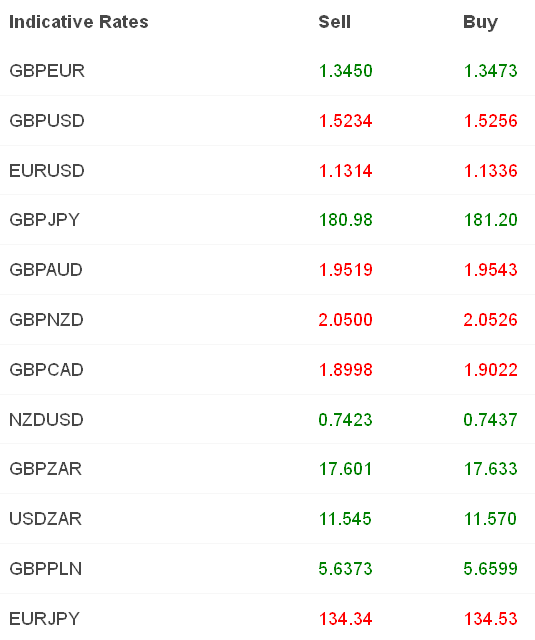Inflation, or the lack thereof – is, outside of the Greek debt pile negotiations, the key mover of currency markets at the moment. While Tsipras, Varoufakis, Schaeuble, Merkel all have been growing further apart on the ways in which Greece’s fiscal crisis can be solved, inflation dynamics through the world economy have very much been in sync. Indeed it is difficult to think of a country that is not seeing falls in inflation currently – outside of oil producing nations.
Overnight, China had a busy day of inflation reporting off to a poor start. Consumer prices in China rose 0.8% on the year to January against a 1% forecasted increase.
Alongside another decline in producer prices – the worst number since October 2009 – calls for additional loosening of monetary policy i.e. interest rate cuts, are only increasing. Last week the People’s Bank of China cut its ‘reserve requirement ratio’ allowing banks to lend more money into the real economy but falling inflation is still tightening the monetary conditions within China.
Our forecast remains that we will see at least two interest rate cuts by the People’s Bank of China this year with the first coming into the Chinese New Year due in the next few weeks.
Today will also give us an opportunity to see just how poorly inflation is faring in places that have seen large shocks to monetary policy in January. Denmark’s central bank has cut rates drastically through January in a bid to maintain its peg in EUR/DKK with the European Central Bank.
With the dramatic weakness of the euro and the loosening of monetary policy that the ECB’s quantitative easing plan will cause, the Danish Central Bank has cut rates to -0.75% in a bid to get people spending money and fend off flows into the currency.
Likewise, today will give us the first official look at how inflation is faring in Switzerland following the dramatic revaluation of the Swiss franc in early January. Despite the Swiss National Bank also cutting rates to -0.75%, the 15% increase in the value of the franc will have murdered inflation expectations in the country.
Department stores and supermarkets dramatically cut their prices in the aftermath of the SNB’s decision. Markets are looking for a 0.6% decline in inflation in January and, as strange as it sounds, that to me seems far too high.
The Danish number is due at 09.00 with the Swiss number at 10.00. We expect further interest rate cuts by both monetary policy authorities in the coming months as inflation remains sadly lacking.
Yesterday’s euro movement was very much in reaction to Tsipras’ Sunday speech of maintaining a desire for a bridging loan. The single currency slipped through the session before stabilizing overnight.
Sterling enjoyed a decent day with the recent move higher against the single currency pushing the pound to its strongest level on a trade-weighted basis since October 2008. We use trade-weighted currency indices to measure the overall change in the value of a currency with the weights reflecting the relative importance of the other currencies, as measured by trade flows between the relevant countries. Simply put, movements in countries’ currencies the UK does a lot of trade with are more important than those with which we do little.
This morning is all about industrial and manufacturing production numbers from the UK and the eurozone. Manufacturing is typically seen as the first industry to recover out of a recession and we will be looking for a strong release from France and Germany whilst a decent UK number will go a long way to rebalancing the economy away from the services sector.

